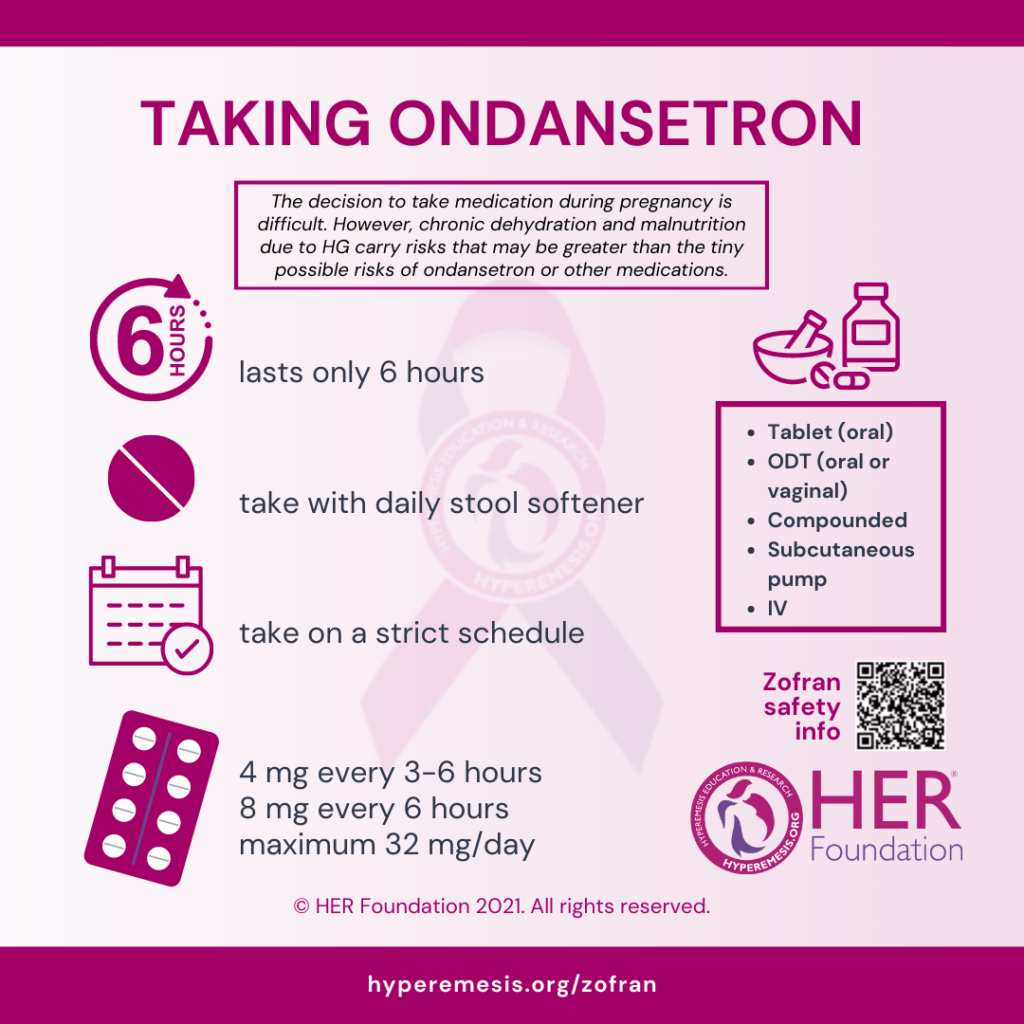
Zofran in Pregnancy: A Comprehensive Guide
Introduction
Zofran (ondansetron) is a prescription medication commonly used to treat nausea and vomiting associated with chemotherapy, radiation therapy, and surgery. It belongs to a class of drugs known as serotonin receptor antagonists (SRAs) and works by blocking the effects of serotonin, a neurotransmitter that plays a role in regulating nausea and vomiting.
Use of Zofran in Pregnancy
Zofran is sometimes prescribed to pregnant women to alleviate severe nausea and vomiting, particularly during the first trimester. This condition, known as hyperemesis gravidarum, can cause significant discomfort and dehydration, potentially leading to health complications for both the mother and the developing fetus.
Safety of Zofran in Pregnancy
The safety of Zofran during pregnancy has been extensively studied. While some early concerns were raised, subsequent research has generally found it to be safe for use during all trimesters.
-
First Trimester: Studies have shown no increased risk of major birth defects or other adverse pregnancy outcomes associated with Zofran use in the first trimester.
-
Second and Third Trimesters: Data on Zofran use in the second and third trimesters is more limited, but available evidence suggests it is generally safe. However, it is recommended to use the lowest effective dose for the shortest possible duration.
Dosage and Administration
The dosage of Zofran prescribed during pregnancy will vary depending on the severity of symptoms and the individual patient’s response. It is typically taken orally, either as a tablet or a dissolving tablet that is placed under the tongue.
-
First Trimester: The usual starting dose is 4-8 mg, taken three to four times daily.
-
Second and Third Trimesters: The dosage may be increased as needed, but should not exceed 32 mg per day.
Side Effects of Zofran in Pregnancy
Zofran is generally well-tolerated during pregnancy. However, some common side effects may include:
- Headache
- Constipation
- Diarrhea
- Dizziness
- Fatigue
Rare but Serious Side Effects
In rare cases, Zofran may cause more serious side effects, such as:
- Cardiac arrhythmias (irregular heartbeats)
- Seizures
- Liver damage
Precautions and Contraindications
Before taking Zofran during pregnancy, it is important to inform your doctor about any underlying medical conditions, allergies, or other medications you are taking.
-
Heart Conditions: Zofran should be used with caution in women with a history of heart conditions, as it may increase the risk of cardiac arrhythmias.
-
Liver Disease: Zofran should be avoided in women with severe liver disease.
-
Allergic Reactions: Zofran is contraindicated in women who are allergic to ondansetron or any other ingredients in the medication.
Alternatives to Zofran in Pregnancy
If Zofran is not suitable for a particular pregnant woman, alternative medications may be considered, such as:
-
Vitamin B6 (pyridoxine): This vitamin has been shown to be effective in reducing nausea and vomiting during pregnancy.
-
Ginger: Ginger has been used traditionally to alleviate nausea and vomiting. It is available in various forms, including supplements, teas, and candies.
-
Acupressure: Applying pressure to specific points on the body, such as the P6 point on the inner wrist, may help reduce nausea.
Lifestyle Modifications
In addition to medication, certain lifestyle modifications can help manage nausea and vomiting during pregnancy:
-
Eat small, frequent meals: Avoid large meals that can trigger nausea.
-
Choose bland foods: Stick to foods that are easy to digest, such as crackers, toast, and oatmeal.
-
Avoid spicy or fatty foods: These foods can worsen nausea.
-
Stay hydrated: Drink plenty of fluids, especially water and electrolyte-rich beverages.
-
Get enough rest: Fatigue can exacerbate nausea.
-
Try relaxation techniques: Deep breathing exercises, meditation, or yoga may help reduce stress and anxiety, which can contribute to nausea.
Conclusion
Zofran is generally safe and effective for treating nausea and vomiting during pregnancy, particularly in the first trimester. However, it is important to discuss the risks and benefits with your doctor before taking any medication during pregnancy. By understanding the safety profile, side effects, and alternatives to Zofran, pregnant women can make informed decisions about managing their symptoms.